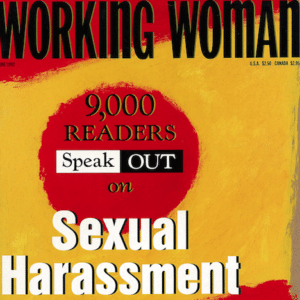If your plans for Saturday include a walk in the park and vacuuming your house, which will you do first? Many factors, like the weather forecast, or the time your in-laws are arriving, could go into that choice. But it might surprise you to learn that such an everyday decision strongly and predictably depends on what kind of a mood you’re in at the moment.
In an extensive study led by Harvard Medical School researcher Maxime Taquet, Ph.D., more than 28,000 people were contacted via a smartphone app at random times throughout the day for an average of 27 days.
They were asked about their mood and the activity they were doing. The results, published in the Proceedings of the National Academy of Sciences in August 2016, revealed that a person’s current mood would accurately predict what he or she will be doing and feeling in the next few hours.
While previous work in this area assumed that pleasure-seeking was the strongest motivator of people’s choices, the study’s results challenged that idea.
It found that when people feel bad, they seek mood-boosting activities, and when they feel good, they choose necessary but less pleasant tasks. Current mood can double or triple the likelihood that you later engage in certain types of activities, according to the study authors.
Cut yourself some slack
Taquet says he has learned some life lessons from his study. “When I’m rushing for a deadline and feel the urge to go out, see a friend, or do some exercise, I used to feel guilty, thinking that I was merely procrastinating or slacking off,” he says. “Now I know that this may be necessary to recharge my happiness battery so that I can carry on with my longer-term goal. This is an adaptive behavior that may prove very useful for us humans.”
When we need some cheering up, we move toward mood-enhancing activities, such as sports, chatting, going out for a walk, or for a drink. When we’re already in a good mood, we gravitate to less pleasant activities, such as working, shopping, cooking, and cleaning, perhaps thinking that our mood will tolerate them.
Coax yourself into productivity
When mood cannot influence your choice of activity (for example, you have to go to work), it can still affect both your productivity and attitude about the work. A small study published in The Academy of Management Journal in 2011 tracked how waking up on the wrong side of the bed affected the work day.
Promo block
Researchers Nancy Rothbard and Steffanie L. Wilk tracked the moods and performance of customer service representatives at an insurance company call center. They found that those who started the day in a good mood provided better quality service and tended to feel more positively about the customers they talked to, describing them as calm, cheerful, and friendly.
But the reps who started out in a bad mood more often described their customers as rude, frustrating, or insulting.
It may not be possible to check your mood at the door when you start your day, but there are steps you can take to shrug off the lingering effects of a frantic morning with your family or a frustrating commute. Rothbard suggests testing out such techniques as listening to music, stopping for coffee, giving yourself a pep talk, and taking a deep breath and getting ready for a new situation.
Leverage your good moods
If you’re feeling psyched because you just exercised, enjoyed an affectionate phone call, or woke up on the right side of the bed, you can view your good mood as a lever toward longer-term goals. This may be just the time to tackle tasks you’ve been avoiding, and, yes, that might depress your mood a bit, but they’ll get done‑and what a relief to have them off your to-do list.
“The idea that we sacrifice our instant pleasures certainly sounds counterintuitive,” Taquet says. “But unpleasant yet necessary tasks need to be done at some point, and this is important for our longer-term welfare. What our data and analyses showed was that people, in general, tend to do those things when they feel good.”
So if you’re in a good mood, you’re likely to tackle vacuuming the house before you go to the park. And if you’re in a snit, you’re more likely to go to the park first, in the perhaps unconscious hope of elevating your mood enough to tolerate the vacuuming.
- Published: May 26, 2017
- Medically reviewed by: John Edward Swartzberg, M.D.







Appreciate it for this post, I am a big big fan of this web site would like to proceed updated. Jeanette Skyler Meakem